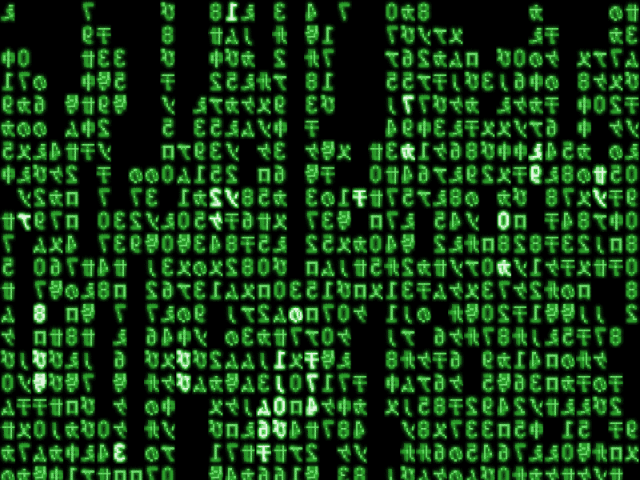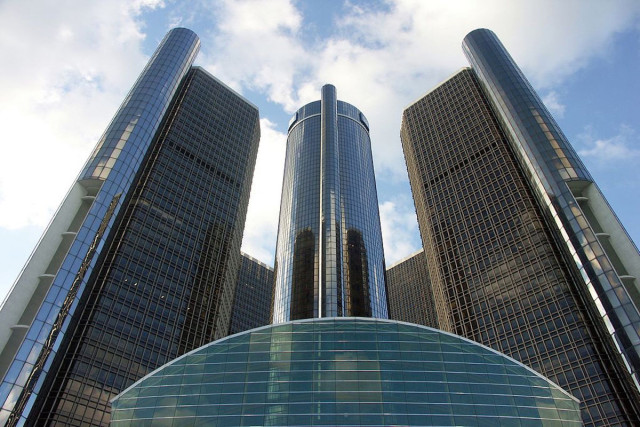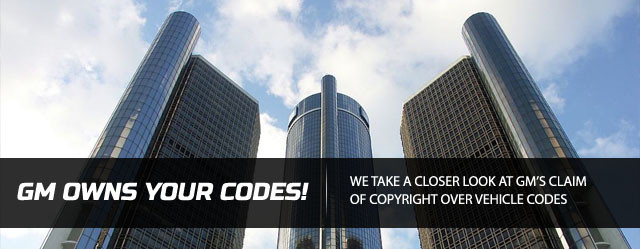As we have all been reading in the grist mills of online digital media sources, General Motors is attempting to use the Digital Millennium Copyright Act (DMCA) to protect their intellectual property. Most automotive enthusiasts and aftermarket manufacturer’s have taken GM’s legal action as an attempt to have owners banned from wrenching on their own cars. As anyone would expect, this didn’t sit well with automotive enthusiasts.
The range of responses to GM’s appeal to the government to protect the proprietary software in modern vehicles has been wide ranging, but mostly negative against GM’s actions. “GM’s not the boss of me and I can do whatever I want,” is the common sentiment. “It’s a violation of our constitutional rights,” claim a few others, while most end a conversation on subject by saying, “So long GM. It was a pleasure doing business with ya.”
Is It Right Or Wrong?
There are some backyard lawyers that question how a car company can even use a regulatory act that was designed to protect videos and music being collected and shared as a means of stopping mechanics from working on cars.

Digital codes are copyrighted. Making changes without permission is a violation of that copyright. Photo from wikipedia.org
While most digital media sources love to keep a good fire stoked and ride the viewership wave of sensationalism – yes, this author has also been guilty of that from time to time – we wanted to take a closer look at what GM is asking for and why.
The DMCA, enacted by President Clinton in 1998, was an attempt to update copyright laws to deal with the regulation of digital material. The act was a collaborative effort of many groups, including publishers and civil rights groups.
For those wondering how a digital copyright regulation could include automobiles, consider this: Title V of the DMCA protects manufacturers of boat hull designs. Yes, you heard correct, boats. Watercraft. Jetskis.

Title V of the DMCA deals with boat hull design copyrights. The act is clearly a means of closing copyright loopholes. Photo from wikipedia.org
Is this starting to make sense now? The Digital regulations are not strictly about digital material. This act was to close loopholes in the existing copyright laws, not just protect Brittany Spears’ latest music video.
What’s Behind It All?
So what is GM afraid of? The automaker spends a lot of money and resources developing the software that operates vehicles they sell. Without protection of this software, individuals can re-write the codes, or provide an apparatus that helps re-write the codes that control engine and driving functions of the vehicles. Anyone with basic computer skills and a desire to experiment with computer functions can adjust fuel curves, speedometer functions, traction control and even braking.
How would this affect GM? Think about what happened with Toyota when they were experiencing unexpected acceleration. Auto owners piled on very quickly with everyone that owned a Toyota claiming sudden unexpected acceleration problems. Toyota paid a staggering 1.2 Billion dollars in damages for this problem.
The Toyota acceleration problem was an internal problem with that manufacturer’ but it didn’t take auto makers very long to figure out that there was no way to track re-written codes that would cause a problem of this magnitude. Anyone that wanted to reverse-engineer the software in automobiles could, and often did, re-write codes and produce hand-held gadgets that could interface and over write the factory codes. If something disastrous happened, these codes could be removed and the factory code replaced at the push of a button, leaving the automaker holding all of the liability.

GM World Headquarters, Detroit, Michigan. Photo from wikipedia.com
What Is GM’s Case?
Here is the basic argument in GM’s case: The software code used to operate the vehicle is subject to copyright. GM owns that copyright and the software. Anyone purchasing a GM car is subject to a licensing agreement. Because it is subject to a licensing agreement, GM is the owner and can allow/disallow certain uses or access.

If these guys can copyright their computer codes, why can’t GM copyright the computer codes used in the vehicle’s computers? Photo from wikipedia.org
GM is not seeking legal action to have people stop working on their GM products. They are trying to protect the software codes that they have a copyright for. It’s no different than Apple computers wanting to keep their platforms protected where the PC type computers continue to be more of an open platform. Now does it make sense?
We’re not asking everyone to like this proposition, and we are not even jumping on one side or the other. All we wanted to do is present the case that GM is making and attempt to understand why. In our perfect world, everyone would be driving a late 1960s Chevy musclecar that had no computer codes and none of this would even matter.


















